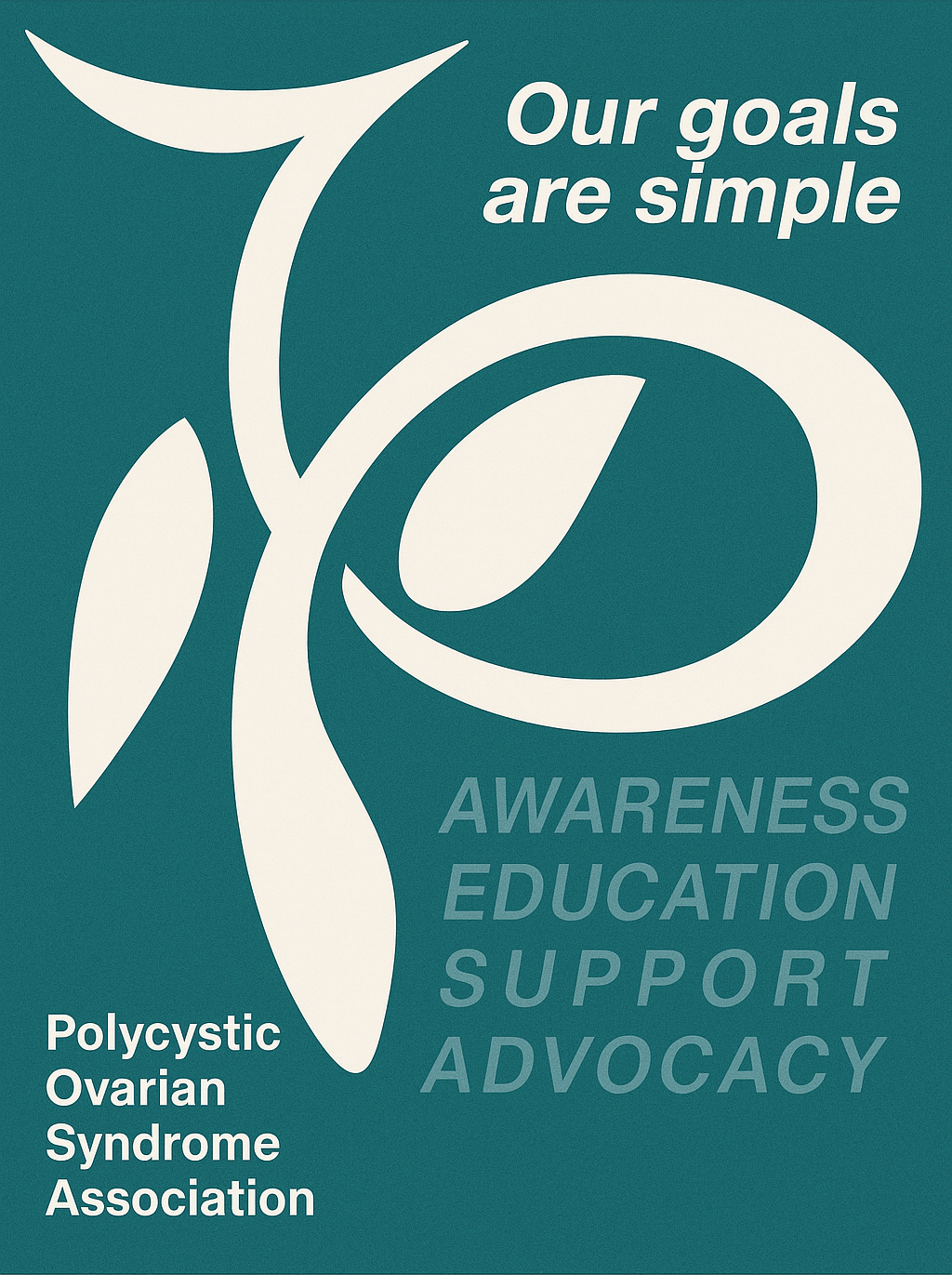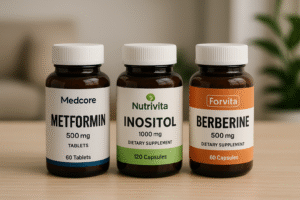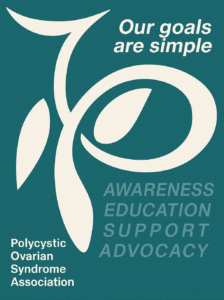Polycystic Ovarian Syndrome Association, Inc. | PCOS Support & Advocacy
Welcome to the
PCOS Association!
Empowering women with PCOS through education, evidence-based guidance, expert partnerships, and resources to address root causes. A 501(c)(3) nonprofit advancing lifelong health.



Understanding polycystic ovary syndrome.
What is PCOS?
With a name like Polycystic Ovary Syndrome, you’d expect the ovaries to be the star of the show. But oddly enough, they’re more like supporting actors in a much bigger production. Not everyone with PCOS has cysts, and you don’t need them to get the diagnosis. (Yes, the name is confusing. No, we didn’t pick it.) The truth is, PCOS is a hormonal condition at its core. It’s less about rogue ovaries and more about hormones doing the cha-cha when they should be doing a slow waltz. When certain hormones get out of sync, a cascade of symptoms can follow. But here’s the catch: PCOS doesn’t look the same for everyone. One woman’s experience may be totally different from another’s—and that’s exactly why awareness and personalized care matter. If you have more than two of the following symptoms, you may have PCOS. Or if you've already been diagnosed, you will likely identify with some of these.
- Irregular menstrual cycles, absence of menstruation or continuous spotting.
- Difficulty conceiving and/or recurrent early pregnancy loss.
- Hirsutism – the appearance of hair on the face and parts of the body that are considered unusual for a woman.
- Acne as an adult, most notably cystic acne along the jawline.
- Weight retention around the middle of the body, despite reduced-calorie dieting.
- Androgenic alopecia, aka “female pattern balding” or thinning of the hair on the scalp, sometimes causing a shiny scalp to show through.
- The appearance on ultrasound of many small unruptured follicles on the surface of the ovaries, resembling a “string of pearls”.
- Periodic ovarian cysts.
- Wide variations in blood sugar ranging from high to low, sometimes resulting in mood swings, and brain fog.
Do I have PCOS?
PCOS Self-Assessment Quiz
This interactive quiz can help you assess whether you may have PCOS, and will provide some insights based upon your personal experience.
Find an expert PCOS practitioner
PCOS has multiple origins and varying symptoms from one person to the next. There is no one medication or dietary program that resolves PCOS for everyone or even for most people. And it's important to understand that the recommendations you receive from other women in an online forum may not be applicable to you, even if it worked well for someone else. The PCOS Association encourages a functional approach to treating PCOS, which means that you need to seek the root cause of your PCOS, then identify a strategy to bring your hormones into balance. Our Practitioner Partners have decades of experience helping women with PCOS do just that. They can help you take charge of your health and to conquer PCOS.



